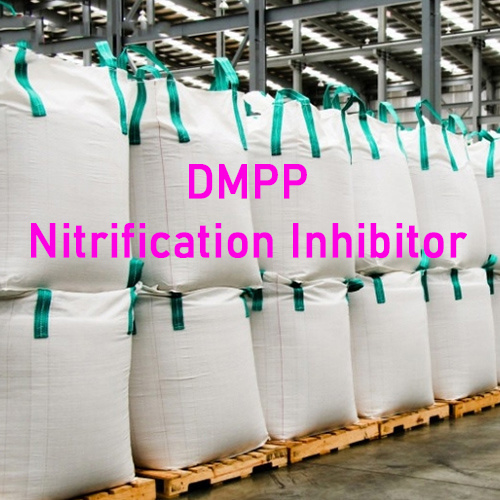
DMPP (3,4-Dimethylpyrazole phosphate) is an advanced nitrification inhibitor used in modern agriculture to reduce nitrogen losses and enhance fertilizer efficiency. It works by slowing down the microbial conversion of ammonium (NH₄⁺) into nitrate (NO₃⁻), effectively keeping nitrogen available in a stable form for longer periods. This helps reduce environmental pollution and boosts crop yields.
DMPP is widely applied in agricultural fertilizers to improve nitrogen use efficiency across different cropping systems and soil types.
Crops: Corn, wheat, rice, barley, and soybean
Purpose: Increases nitrogen retention in the root zone, reducing nitrate leaching and improving plant uptake.
Crops: Potatoes, tomatoes, lettuce, carrots, and onions
Purpose: Enhances nitrogen availability in high-value crops, promoting faster growth and better yields.
Usage: Common in forage production, where it prolongs nitrogen supply and supports higher protein content in grasses.
Application: Used in golf courses, parks, and urban landscaping for consistent nitrogen availability and greener appearance.
Use: Integrated into liquid or granular fertilizers to manage nitrogen release under controlled environment conditions.
| Application Form | Method of Use |
|---|---|
| Granular fertilizers | Blend or coat with urea, ammonium sulfate, or NPK |
| Liquid fertilizers | Add DMPP into UAN (urea ammonium nitrate) or irrigation |
| Soil application | Mix with nitrogen fertilizers before broadcasting or injecting |
| Controlled-release blends | Combine with polymer-coated or sulfur-coated fertilizers |
Recommended dosage: Typically 0.5–1.5% of the nitrogen content, depending on crop, soil, and climatic conditions.
Improved Nitrogen Use Efficiency (NUE): Slows the conversion of ammonium to nitrate, allowing crops to absorb more nitrogen.
Reduced Nitrate Leaching: Keeps nitrogen in ammonium form longer, preventing it from washing out into groundwater.
Lower Greenhouse Gas Emissions: Reduces nitrous oxide (N₂O) release, supporting low-carbon farming.
Increased Crop Yields: Better nitrogen availability translates into stronger growth and improved output.
Cost-Effective: Minimizes fertilizer waste and lowers application frequency.
Environmental Safety: DMPP is biodegradable, non-toxic to plants and soil microorganisms.
With increasing attention to sustainable agriculture and climate-resilient practices, DMPP is becoming a preferred nitrogen stabilizer in major agricultural markets, including:
China – large-scale fertilizer application
Germany – advanced green farming
United States & Canada – precision agriculture
Brazil & Argentina – nitrogen management in tropical crops
The global demand for DMPP is expected to rise steadily, especially in regions with high rainfall, sandy soils, or environmental regulations related to nitrogen runoff.
China is one of the largest DMPP producers, with several certified manufacturers offering:
Competitive pricing
High purity (≥98%)
Consistent supply capacity
OEM and bulk export services
![]() COA-DMPP 3,4-Dimethylpyrazole phosphate.pdf
COA-DMPP 3,4-Dimethylpyrazole phosphate.pdf
![]() TDS-DMPP 3,4-Dimethylpyrazole phosphate.pdf
TDS-DMPP 3,4-Dimethylpyrazole phosphate.pdf
Back to top